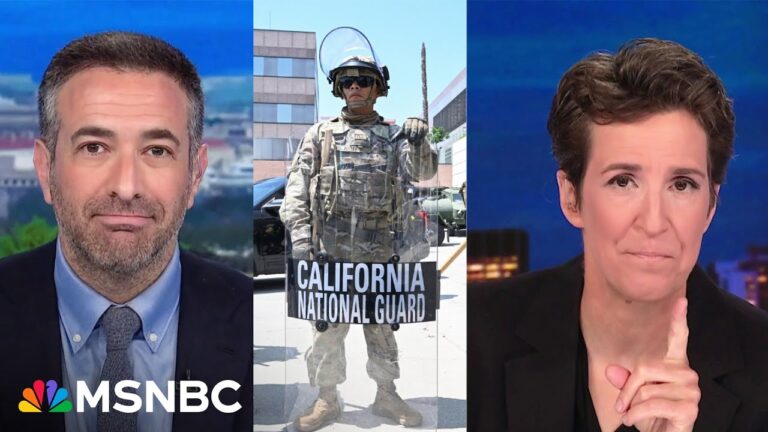Video at the bottom!
The situation is intense as protests against ICE raids evolve into a broader conflict involving federal powers and state governance. The President’s approach has raised significant concerns, especially given his intention to deploy extraordinary federal forces, potentially overruling a sitting governor’s authority. This tension highlights ongoing legal battles, with Democrats pushing back against what they perceive as overreach.
Recent developments have seen dramatic arrests, including that of a Democratic mayor, whose case against the President fell apart in court, leading to a lawsuit from the mayor claiming improper use of force. As protests unfold in various cities, including Los Angeles, Governor Newsom has vocally opposed the federal military presence, urging that it lacks legality under constitutional provisions.
Trump’s rhetoric warns of severe reactions to protests, emphasizing a readiness to meet demonstrators with formidable force. This stance raises important questions about the rights to assemble and protest, framing the current conflict as one deeply rooted in the legal boundaries of federal power. State officials argue against the deployment of troops for domestic law enforcement, citing constitutional limitations.
The ongoing situation has spurred additional protests, with citizens across the country responding to perceived threats against democracy. Amidst escalating tensions, California is actively pursuing legal action to halt these deployments, claiming that the federal military presence has already caused extensive harm.
The President’s past reactions to different protest movements reveal a stark double standard, showcasing a selective embrace of law enforcement’s role. The legal justification for military deployment continues to be a contentious point, as state officials seek to clarify the limits of federal authority amidst a backdrop of civil unrest.
Meanwhile, there are logistical and ethical discussions around deploying Marines domestically, a practice typically reserved for extreme situations such as rebellion. With regulations being hastily established, the legality and morality of the government’s actions remain hotly debated. This unfolding conflict is essential for the electorate to scrutinize, prompting questions about the very nature of federal and local governance in contemporary America.


